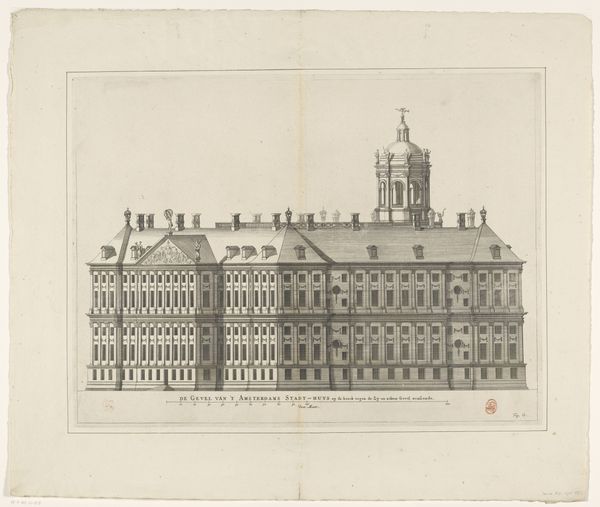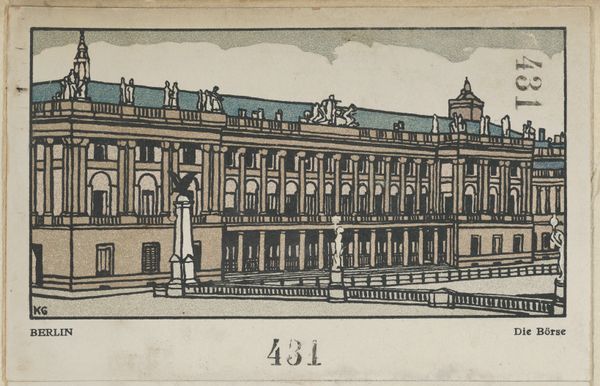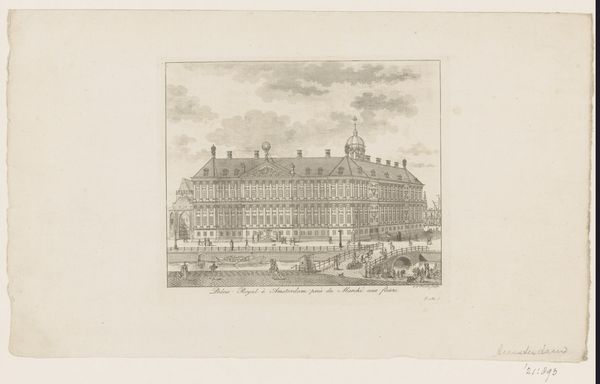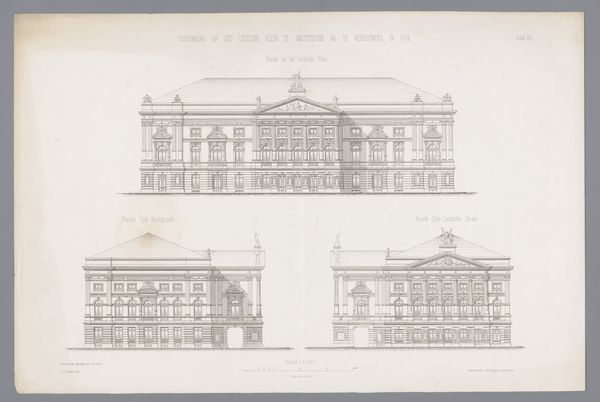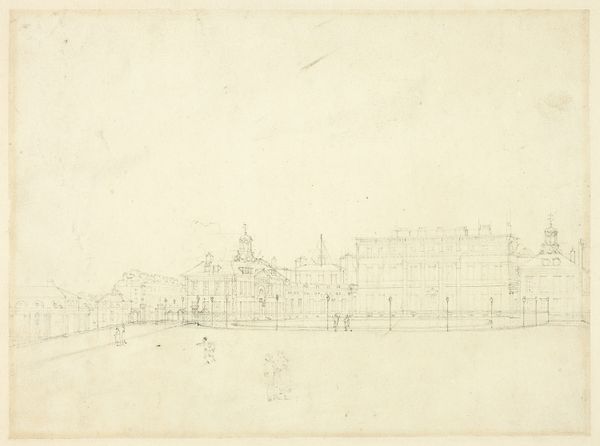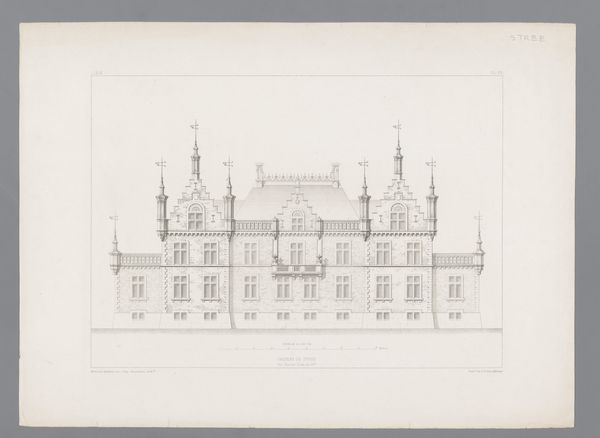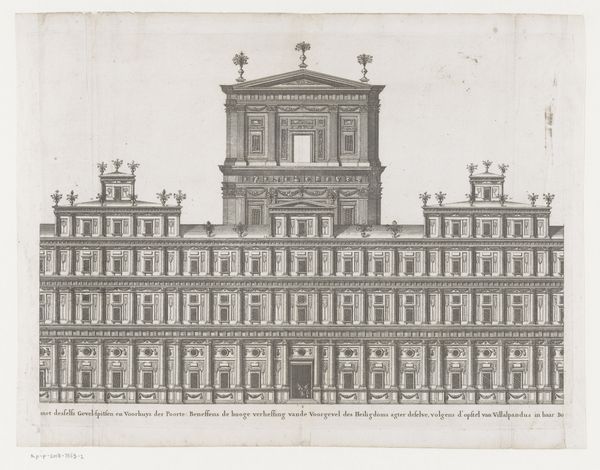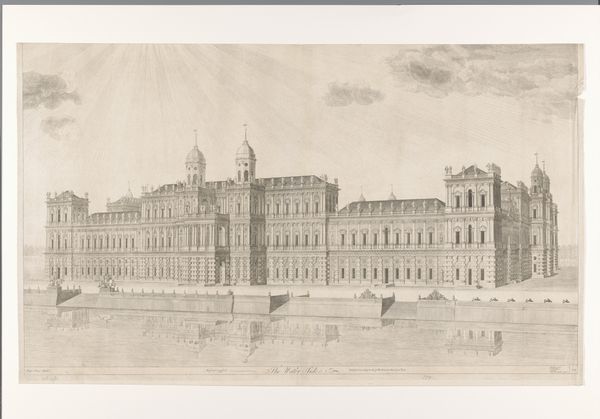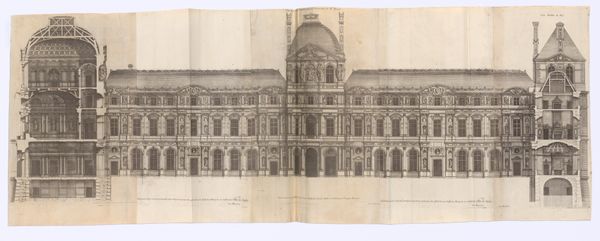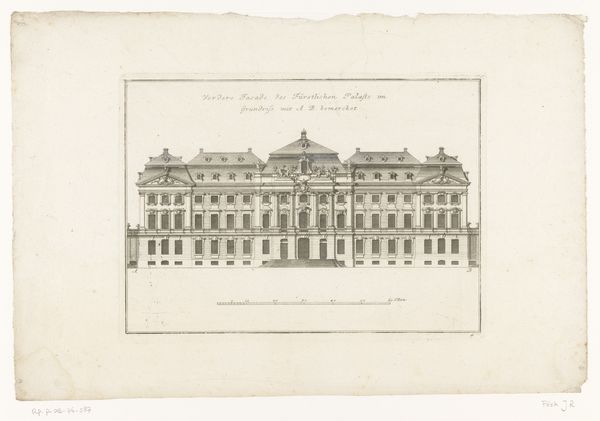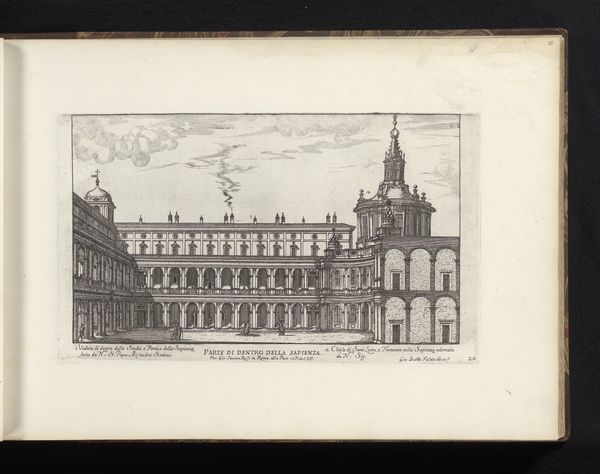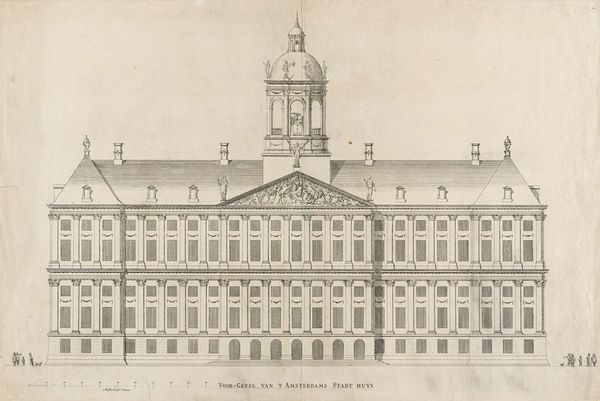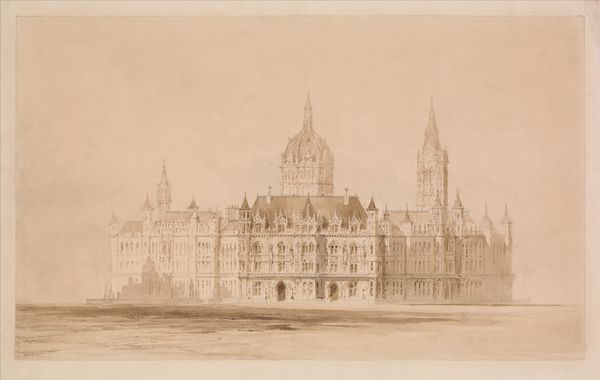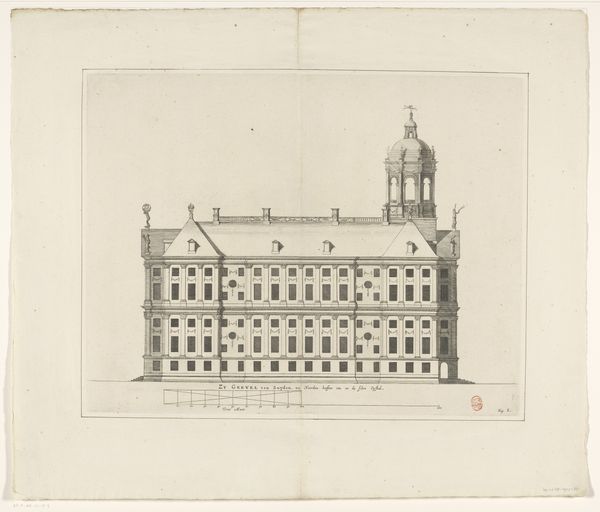
drawing, paper, pencil, architecture
#
drawing
#
neoclacissism
#
light pencil work
#
perspective
#
paper
#
form
#
pencil
#
line
#
cityscape
#
architecture
#
realism
Dimensions: height 166 mm, width 259 mm
Copyright: Rijks Museum: Open Domain
Editor: Here we have Jean Théodore Joseph Linnig's "Stadhuis van Antwerpen," created in 1848 using pencil on paper. The intricacy of the line work is really striking; it gives the building this sort of ethereal quality despite its obvious monumentality. What stands out to you in this piece? Curator: Note how the drawing, despite its dedication to realistic depiction, focuses heavily on the interplay of lines and the articulation of form. The artist uses the very regular grid of windows, layered stories, and repeating sculptural elements to establish an orderly, almost mathematical, harmony. Do you perceive any subtle variations in the pattern? Editor: Yes, I see what you mean. It's not just a straightforward depiction; there are slight changes in the intensity of the pencil that add depth and shadow, and a hierarchy created by the ornamentation clustered towards the top of the building. Does this create a certain visual rhythm, you think? Curator: Precisely. Linnig creates rhythm not through subject matter, but through a carefully controlled application of his medium. It's about establishing a dynamic relationship between line, form, and space – the very essence of the building is revealed through this calculated exercise. What sort of dialogue emerges between the architectural subject matter and the almost clinical method of representation, would you say? Editor: It's like the act of observation becomes the subject itself. By meticulously recording the details, Linnig emphasizes not just the building's appearance but also the artist's way of seeing. I hadn't considered that before. Curator: Indeed. We move beyond a simple likeness and find an investigation of representation itself. An artwork invites speculation and discovery, so we become collaborators, in a sense, of the artistic endeavor.
Comments
No comments
Be the first to comment and join the conversation on the ultimate creative platform.
